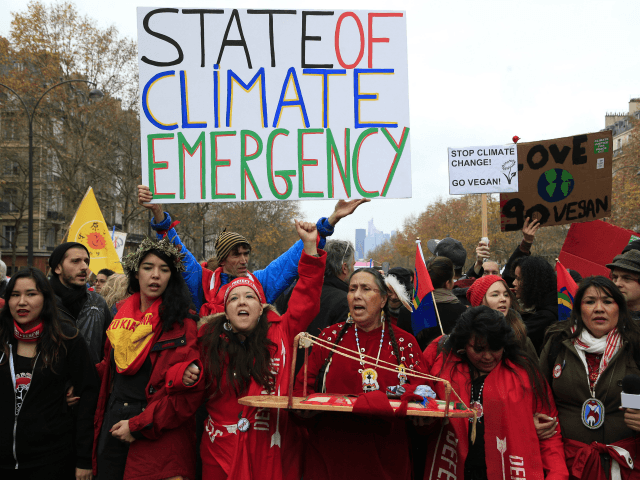Apocalyptic scenarios attributed to global warming are simply false and the human race will be able to accommodate whatever “climate change” throws at us, claims a remarkably sober new essay in Scientific American.
The essay, penned by John Horgan, the director of the Center for Science Writings at the Stevens Institute of Technology, analyzes two recent reports by “ecomodernists” who reject climate panic and frame the question of climate change and humanity’s ability to cope with it in radically new terms.
One of the reports, a work called “Enlightened Environmentalism” by Harvard iconoclast Steven Pinker, urges people to regain some much-needed perspective on climate, especially in the context of the overwhelming material benefits of industrialization.
Pooh-poohing “the mainstream environmental movement, and the radicalism and fatalism it encourages,” Pinker argues that humanity can solve problems related to climate change the same way it has solved myriad other problems, by harnessing “the benevolent forces of modernity.”
Separating himself from environmentalists who seem to detest modernity, Pinker asserts that industrialization “has been good for humanity.”
“It has fed billions, doubled lifespans, slashed extreme poverty, and, by replacing muscle with machinery, made it easier to end slavery, emancipate women, and educate children. It has allowed people to read at night, live where they want, stay warm in winter, see the world, and multiply human contact. Any costs in pollution and habitat loss have to be weighed against these gifts,” he says.
And just as human ingenuity has allowed us to overcome countless obstacles in the past, he notes, it is more than reasonable to suppose it will do so in the future as well.
The second report put forward by Horgan is a recent article by Will Boisvert titled “The Conquest of Climate,” which contends that the “consequences for human well-being will be small” even if human greenhouse emissions significantly warm the planet.
Boisvert, who has been described as a “left-wing environmental expert, is no “climate denier,” yet he calls for climate alarmists to take a deep breath and step back from doomsday forecasts that likely have little to do with what will actually take place in the future.
As an example, the author pokes fun at a 2016 Newsweek article announcing that “Climate change could cause half a million deaths in 2050 due to reduced food availability.”
The story, based on a Lancet study, made dire forecasts regarding the effects of climate change on agriculture, while failing to note that the study actually predicts much more abundant food availability in 2050 thanks to advances in agricultural productivity. These advances will “dwarf the effects of climate change,” he contends, and the “poorest countries will benefit most.”
Like Pinkers, Boisvert tries to factor in what climate alarmists ignore: the capability of human beings to react to changing scenarios in remarkably ingenious ways.
“Throughout history humans not only weathered climate crises but deliberately flung ourselves into them as we migrated away from our African homeland into deserts, mountains, floodplains and taiga,” he writes, before embarking on an excursus into the striking cleverness of the Inuit in adapting to a hostile environment.
The current climate change “crisis” that has ecologists’ knickers in a knot, just isn’t that big a deal, he argues. It is merely the “latest episode in humanity’s ongoing conquest of extreme climates,” which will likewise “amount to just another problem in economic and technological development, and a middling-scale one at that.”
While climate skeptics will welcome this gust of common sense wafting in from the Scientific American, establishment climate alarmists will undoubtedly seek to quash the news, knowing it could affect not only the funding they depend on, but the ideologically driven political programs they seek to impose on the world.
After all, if the world is not under imminent peril from climate change, who will listen to—and fund—the prophets of doom?
Follow Thomas D. Williams on Twitter Follow @tdwilliamsrome

COMMENTS
Please let us know if you're having issues with commenting.